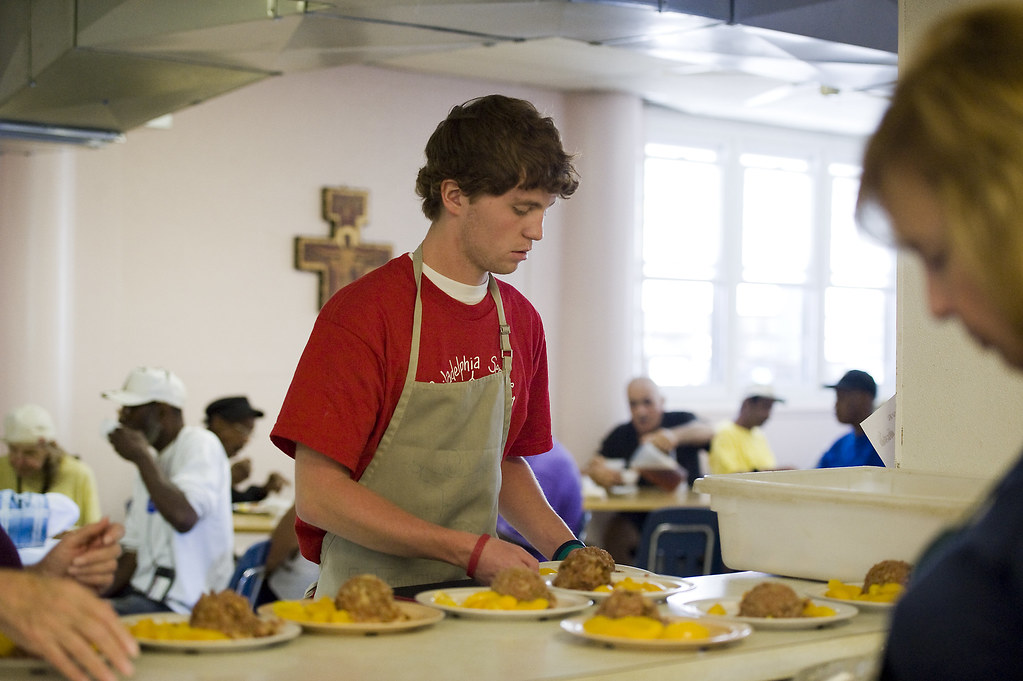
I live in Chattanooga, Tennessee, America’s “most Bible-minded city” as well as the city with the nation’s highest percentage of church attendance. Yet these accolades offered little help to many of those struggling in the city’s urban center.
For example, during the same year the city was named “most Bible-minded,” public education struggled, gang violence grew and for cities of its size ranked tenth in criminal violence. Clearly, being “Bible-minded” does not quite solve social problems.
If Bible engagement isn’t the answer, what is? From Scripture, the goal is faith in action. Here are five ways our faith can be expressed in practical actions.
1. Be the Answer to Your Own Prayers
We often pray about the problems around us. What would happen if we asked God to help us be the answer to our own prayers?
If we wait for somebody to do something someday, it’s not likely to happen. I must realize I am somebody and I can do something to make a difference.
2. Just Do Something
Too much time is spent deciding how to help or in what area to serve. Instead, just do something. You might totally fail, but at least you are trying.
When the 2010 earthquake destroyed much of Haiti, I felt compelled to go and help. Why? I had just been there a few months earlier. These were people I had met.
I arrived, but really didn’t have any medical expertise. I didn’t have a pile of money to solve major problems. But I was there and I did whatever I could to help.
I ended up doing a variety of work, ranging from carrying the stretchers of amputee victims to sorting medical supplies to distributing aid. It wasn’t pretty, but it helped.
3. Don’t Wait for Permission
Many of our churches and other organizations are set up with far too many ways to tell you no. Instead, find something that does not require permission and start. You may not be able to preach the sermon on Sunday or turn your sanctuary into a homeless shelter, but you can feed one person in need or help a child after school with her homework.
4. Expect Trouble
If you dive in and do something and don’t wait for permission, expect trouble. Someone will tell you, “You can’t do that.” Others will complain about how you help others.
You can tell them, “I can and I will.” To those who complain about how you help, you can tell them, “When you help in this area, you can do it the way you want.”
It’s easy to get discouraged when the people you expect to help or at least support your efforts complain instead. The sooner you realize it’s going to happen no matter what you do and still make a difference anyway, the better off you will be.
5. Treat Everyone Like a Brother or Sister and Act Accordingly
This is my life goal: to view every person I meet as a brother or sister and act accordingly. If I saw my sister on the side of the road begging, I would stop to help. If my brother lost his job or home, I would do whatever I could to pitch in a do something.
People in need around us are exactly that–people. Too often, those in need are treated like projects or pets. Yet the love of Jesus compels us to stop and show compassion.
I love the story of the woman who poured perfume on the head of Jesus. Those around them complained that the woman had been wasteful with her resources. The money for the perfume could have been used to help others in need.
Jesus answered, “She did what she could.” He did not discourage her act of service, even if it looked odd to others. Instead, he encouraged her. The woman’s story is still told today.
May your service to others likewise lead to stories that impact lives today and for generations to come.
+++

Dr. Dillon Burroughs is one of America’s top communicators on today’s Christian issues. He serves as senior writer of The John Ankerberg Show and is author or coauthor of nearly 40 books. You can follow him on Facebook and Twitter. He lives with his wife and three children in Tennessee.

